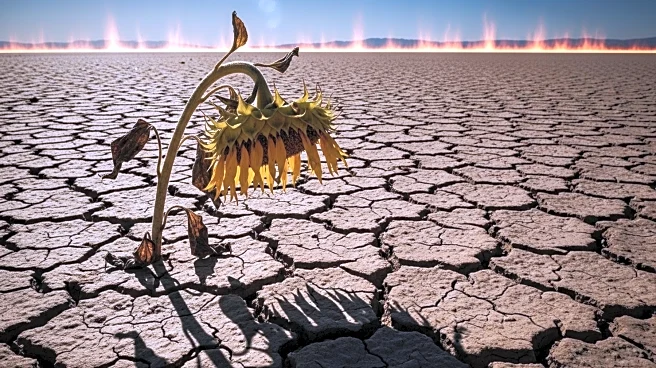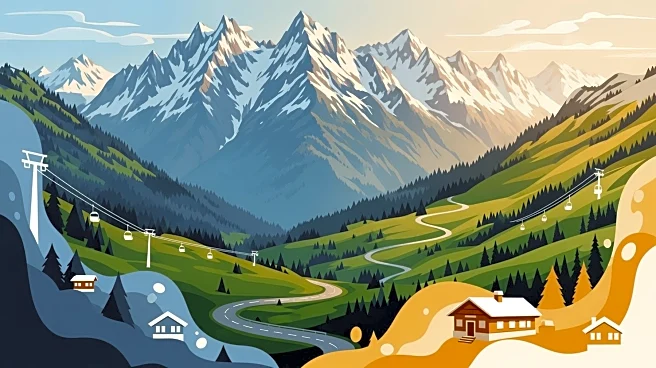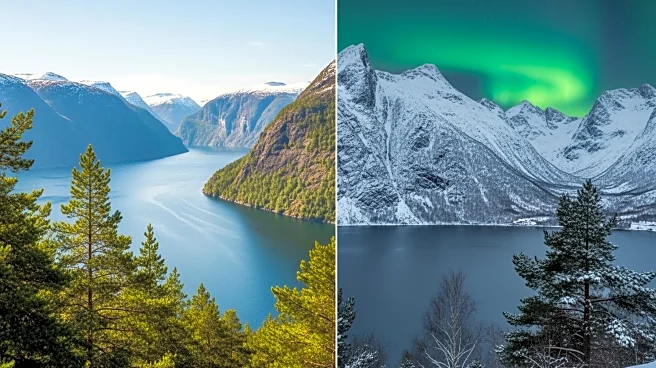What's Happening?
Recent observations indicate that summer temperatures are extending later into the season, a phenomenon attributed to human-amplified climate change. This shift in seasonal temperature patterns is becoming increasingly noticeable, with warmer weather persisting beyond traditional summer months. The extension of summer heat is linked to broader climate change trends, which are affecting weather patterns globally. Scientists and environmentalists are raising concerns about the implications of these changes, as they may lead to more frequent and intense heatwaves, impacting ecosystems and human health.
Why It's Important?
The extension of summer temperatures has significant implications for various sectors, including agriculture, energy, and public health. Prolonged heat can stress crops, affecting food production and supply chains. It also increases energy demand for cooling, potentially straining power grids and leading to higher utility costs. Public health is at risk, as extended heat exposure can exacerbate health issues, particularly for vulnerable populations. The phenomenon underscores the urgent need for climate action and adaptation strategies to mitigate the impacts of global warming.
What's Next?
As summer temperatures continue to stretch into the fall, policymakers and communities may need to implement adaptive measures to cope with the changing climate. This could include investing in infrastructure to handle increased energy demand, developing heat-resistant crops, and enhancing public health initiatives to protect vulnerable groups. The ongoing changes may also prompt further research into climate patterns and the development of predictive models to better understand future impacts. Public awareness campaigns could be launched to educate citizens about the importance of climate resilience and sustainable practices.
Beyond the Headlines
The extension of summer temperatures may lead to long-term shifts in cultural and lifestyle patterns, as communities adapt to new seasonal norms. It could influence tourism, as traditional summer destinations experience prolonged peak seasons. The changes may also affect wildlife and natural habitats, as ecosystems struggle to adjust to altered climate conditions. This development highlights the interconnectedness of climate change impacts, emphasizing the need for comprehensive approaches to address environmental challenges.









